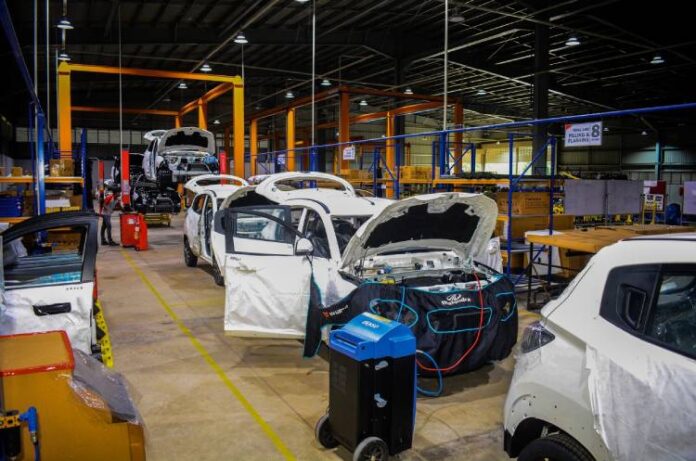By: Staff Writer
January 06, Colombo (LNW): Sri Lanka’s local vehicle assembly sector is urging the government to introduce a competitive tax framework that gives priority to locally assembled vehicles.
As a cornerstone of the nation’s economy, this industry drives job creation, preserves foreign exchange, and fosters technical innovation.
Operating under the Ministry of Industries’ Standard Operating Procedure (SOP), the sector comprises over 17 assembly plants producing a variety of vehicles, including motorcars, SUVs, motorcycles, and electric three-wheelers.
With 17 additional investors preparing to launch operations, the industry is poised for significant growth.
Currently, the sector directly employs over 5,000 technically skilled workers, including recent graduates and trainees, and indirectly supports more than 10,000 jobs. This creates a vast ecosystem that sustains thousands of families, enhancing the nation’s human capital.
During the suspension of vehicle imports, the local assembly industry demonstrated its strategic value by reducing dependency on completely built units (CBUs), conserving foreign exchange, and proving the feasibility of local manufacturing.
Global automotive giants such as Hyundai, TVS, Bajaj, Mahindra, TATA, Lanka Ashok Leyland, DFSK, Foton, JAC, JMC, Chery, Proton, Wuling, and BAIC have established operations in Sri Lanka, underscoring the sector’s ability to attract renowned international brands.
Sri Lanka’s automotive component manufacturing sector has also advanced significantly, producing high-quality parts such as batteries, tyres, bumpers, exhaust systems, seats, plastic and composite components, liners, wire harnesses, and metal and rubber parts.
These achievements have positioned Sri Lanka as a competitive player in the regional automotive supply chain, meeting international standards.
The industry is setting ambitious goals, including vehicle and component exports within the next five years. Plans include increasing component export revenue from USD 800 million to USD 2 billion and generating an additional 45,000 jobs.
Drawing from the success of countries like Thailand and Malaysia, Sri Lanka’s strategic location, government incentives, and growing supply chain infrastructure offer a solid foundation for realizing these objectives.
As the government considers lifting the suspension on CBU imports, industry stakeholders stress the importance of a competitive tax structure favoring locally assembled vehicles. Such measures will ensure sustained growth, attract further investment, and secure long-term viability.
Sri Lanka’s local assembly and automotive component sectors symbolize more than industrial activity—they represent the nation’s potential for industrial progress. With strategic policies and sustained support, these industries can propel Sri Lanka toward sustainable economic and industrial prosperity.

